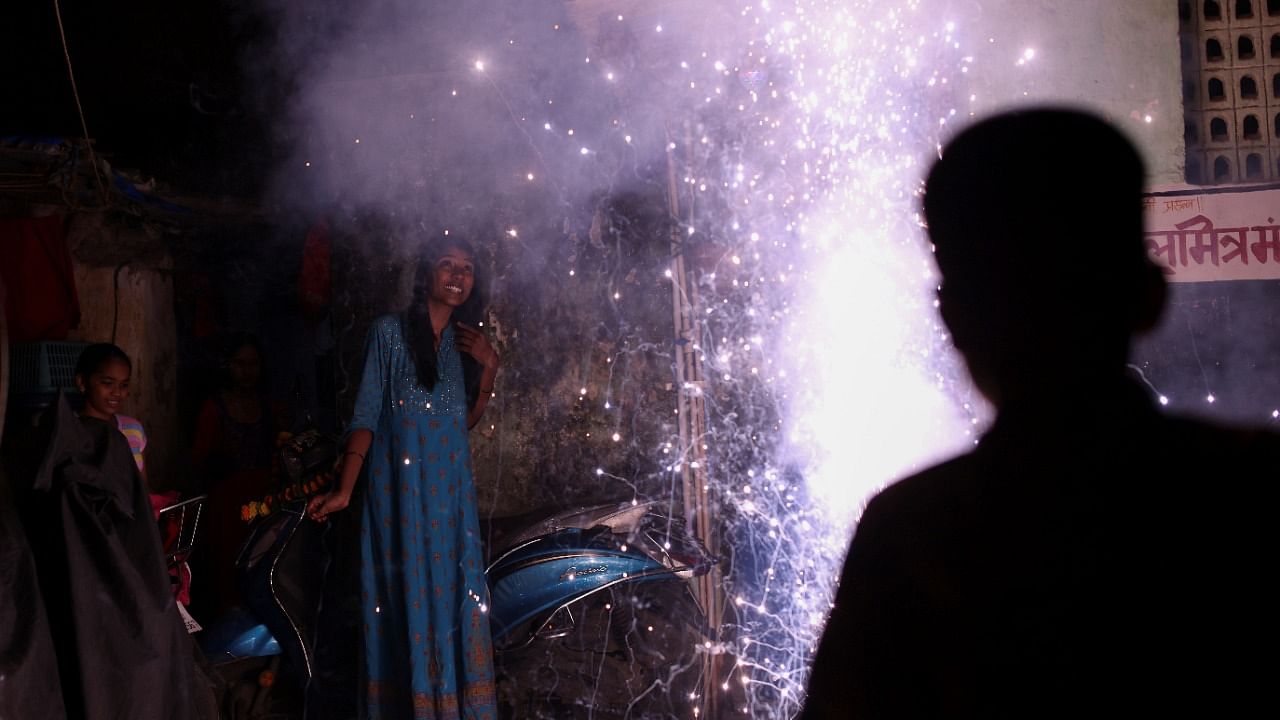
People watch as firecrackers burn during Diwali.
Credit: Reuters FIle Photo
Bengaluru: Pollution levels in several cities across the country doubled while Bengaluru saw a 55 per cent increase in the PM 2.5 levels during the first 12 hours of Monday, a report by NCAP Tracker said.
Researchers analysed air quality of 11 cities by comparing the pre-Deepavali PM 2.5 levels from November 11 with the 12-hour data from 12 am to 12 pm on Monday. The WHO’s daily safe limit for PM2.5 is 15 micrograms per cubic metre.
Compared to Deepavali days in 2022 (October 23, 24 and 25), Bengaluru fared better while the remaining cities saw a spike. Average PM 2.5 for two days in Bengaluru was about 81.5 micrograms per cubic last year. This year it was down at 65.8. However, some cities saw the figures nearly double.
Delhi fared the worst with PM 2.5 during the first 12 hours of November 13 reaching 395.9 micrograms/cubic metre, compared with 126.7 micrograms/cubic metre for October 25, 2022. In terms of spike, Kolkata saw a near 500 per cent increase from last year's 26.5 to 152.3 micrograms/cubic metre.
Bhopal (334.5) came close to Delhi while Patna (255.6), Mumbai (159.9), Chandigharh (157.5), Chennai (114.7), Gandhinagar (122.3), Lucknow (167.6) and Hyderabad (88.4) saw high levels of PM 2.5.
The 12-hour data was considered with the intention of capturing the spikes on the morning of the day after Deepavali, which are usually very high. "We plan to do a follow-up report that will compare the 24-hour period after Diwali in 2023 with that in 2022," a spokesperson NCAP Tracker said.
Aarti Khosla, Director of Climate Trends, said the "already poor" levels of PM 2.5 crossed the limits due to the unstopped burning of firecrackers.
"A Supreme Court ban (on fire crackers) in Delhi NCR was flouted fully and shows that a different approach where the Centre and state must work together is needed. We also need to think of solutions to those unwilling to move in their mindset- making sure that the cracker industry itself is phased out over the next 2-3 years rather than making it a drastic shutdown," she said.